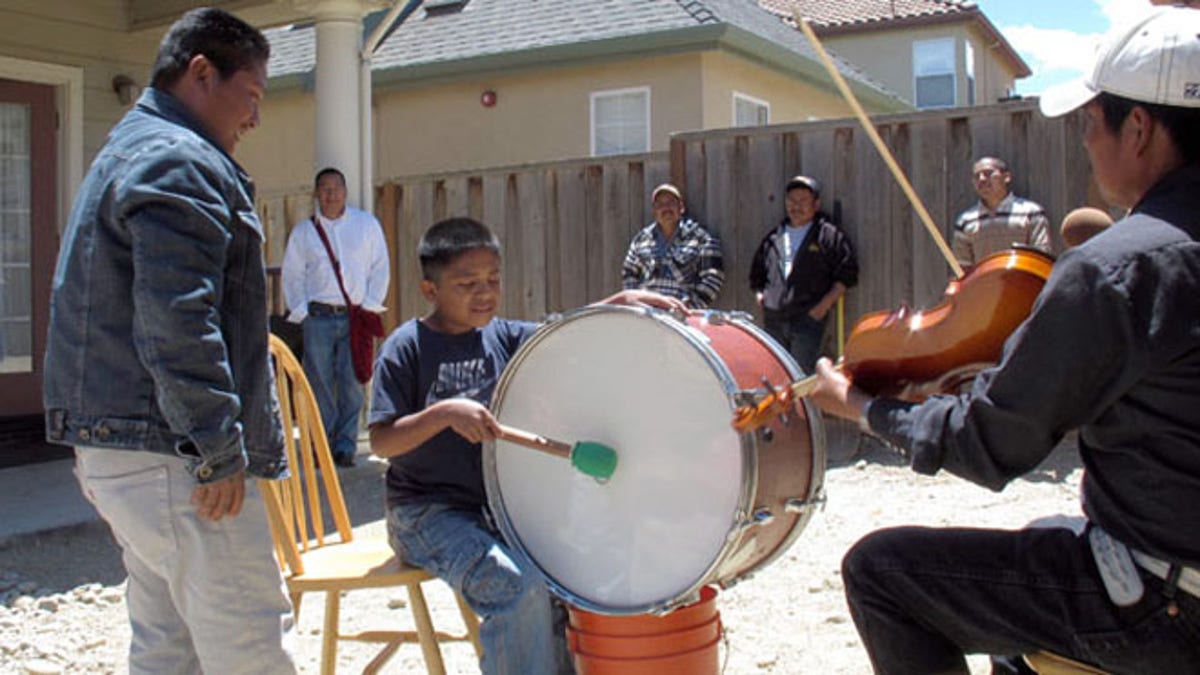
Trique children, whose families migrated from the Mexican state of Oaxaca, learn how to play traditional instruments in Greenfield, Calif. (AP Photo/Gosia Wozniacka) (AP2011)
"Oaxaquita" is Spanish for "Little Oaxacan", and along with the word "indio" (Indian), they make up two popular epithets among Mexicans in the United States to humiliate fellow countrymen, who happen to be darker- skinned, especially those hailing from Oaxaca – a region of Mexico with a large indigenous population.
In one California school district, these hurtful words are being banned.
Race and ethnicity-based insults such as "Oaxaquita", "indito" and "indio" are now prohibited in the Oxnard school district thanks to a new anti-bullying campaign called "No me llames Oaxaquita" (Don't call me little Oaxacan), which was launched by the Mixteco/Indigena Community Organizing Project in early May.
The L.A. Times reports that an estimated 20,000 Ventura County residents are indigenous Mexicans – "most of whom are Mixtec from the states of Oaxaca and Guerrero who work in the strawberry industry" – and many of whom speak little or no Spanish.
Ironically, the bullies are also Mexican children who have immigrated to the United States with their parents or who are US-born to Mexican parents; The fact that these children are statistically more than likely to have indigenous roots themselves as the majority of Mexicans are classified as "mestizo", does little to stop the inter-ethnic racism which is a problem not only in Mexican and Latino communities in the United States, but throughout Latin America.
Speaking about the anti-bullying campaign, UCLA Labor Center researcher Gaspar Rivera-Salgado had this to say: "[It's] a really interesting way to confront, very directly, something that the Mexican nation and the Mexican immigrant community sometimes sweeps under the rug, and that's the prevalence of racism and discrimination that indigenous people have to endure in Mexico and that is reproduced here in the United States."
An Oxnard School District Board of Trustees member, Denis O'Leary, is hopeful that the "No me llames Oaxaquita" campaign can make a difference for this often over-looked segment of the population.
"I'm very proud of the students and the parents that stood up on this issue," he said. "We need to now learn from this and do better."








































